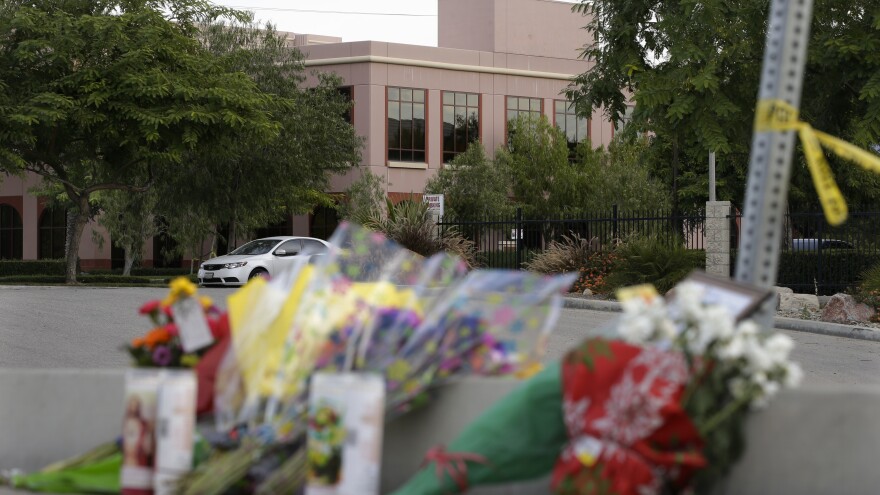The investigation into Wednesday's mass shooting in San Bernardino, Calif., is impacting the lives of tens of thousands of people with developmental disabilities.
The attack, which claimed the lives of 14 people and wounded 21 others, targeted a holiday party for county public health employees at the Inland Regional Center, which provides vital services for about 30,000 developmentally disabled people.
As authorities continue to delve into the shooting, the IRC remains closed, cutting off care for approximately 30,000 individuals in the Inland Empire.
Ten miles away from the IRC, at a café in Riverside, Gina Bernard describes how long her son Martin has received services provided by the center.
"He became a client at the age of 2 1/2, and he's 26 now," she says. "He was diagnosed by them and brought on as a client and so he's received services from them since that time."
In order to qualify, an individual must be diagnosed by the IRC as having a condition like autism, cerebral palsy or epilepsy.
"Well, when he was little, most of it was things like they would pay for him to go to summer camp, for example, or play groups," his mother says. "Nowadays, they pay for something called ABA — it's working with them behaviorally to get children with autism in particular to be able to wait longer, or to take turns, or those sorts of things."
The Inland Regional Center connects families in need to care providers such as the Autism Response Team in the neighboring city of Redlands.
Dr. Kesjana Cake, the regional director of Autism Response Team, says her team works closely with clinicians, service coordinators and managers at IRC.
"We had several families that contacted our office just checking to see how our employees are doing, how we were doing," she says. "I mean, we work very closely with these families. We're in their homes most days of the week, so we kind of become an extended family to them."
Cake says she and her clients are dealing with a situation that feels surreal. While she wasn't at the IRC when the shooting occurred, she says she's not sure what she'll feel when she goes back.
Bernard and her son Martin go to the complex less often than Cake. Still, Bernard says she doesn't want her son to find out what happened there.
"As far as my son is concerned, we haven't told him anything. We have purposely shielded him from any mention of it on the news," she says. "If he were to know, it would be devastating for him, and my biggest job is to make sure that he continues to feel safe."
Police are still combing the Inland Regional Center for evidence. The buildings won't reopen until Wednesday at the earliest.
Copyright 2015 KVCR


